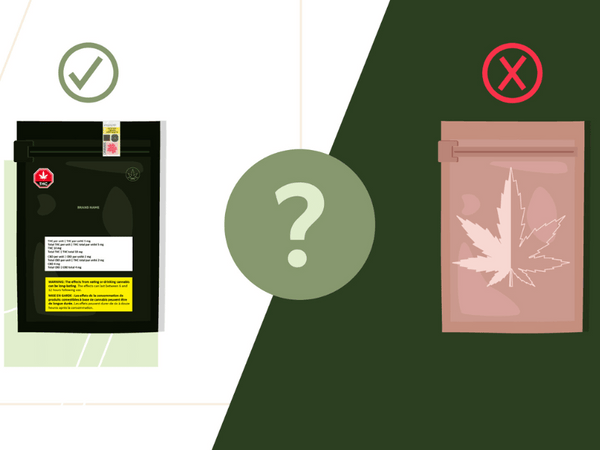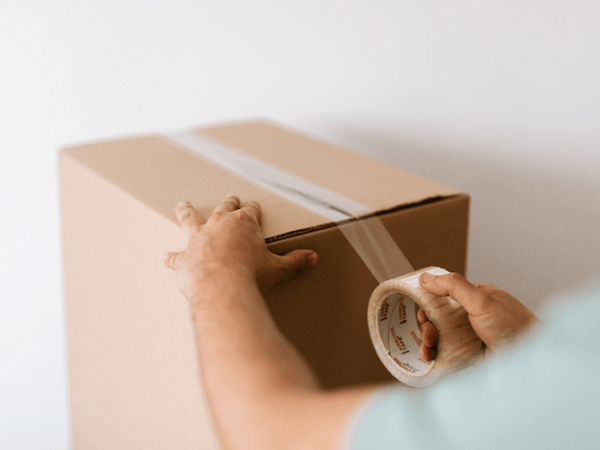Shipping THC and hemp products through the postal inspection service of the United States Postal Service (USPS) is a topic that warrants careful consideration due to the complex legal landscape surrounding cannabis and its derivatives. With the growing popularity of shipping hemp and the availability of THC-infused hemp products everywhere, many individuals may be tempted to utilize our postal service and the convenience of USPS for shipping these items.
However, before embarking on such endeavors, it is worth noting that it is crucial to understand the legalities and regulations of federal agencies governing the postal inspection service, the US postal service itself, the postal service, and the mailing of hemp products, cannabis, and controlled substances.
In this article, we delve into the question: Can I Ship THC Products in the US Mail? We'll explore the legal framework surrounding THC, the regulations imposed by USPS (United States Postal Service), the various potential penalties, risks, and consequences of non-compliance, and alternative avenues for obtaining and transporting THC products legally. By gaining a comprehensive understanding of the laws and guidelines governing this issue, individuals can make informed decisions and mitigate the risk of running afoul of the law.
Join us as we navigate the intricate terrain of shipping THC products, providing insights, guidance, and practical tips to help readers navigate this complex aspect of cannabis regulation.
Understanding THC and Its Legality

Tetrahydrocannabinol (THC) in marijuana is the primary psychoactive compound found in cannabis plants, responsible for the euphoric "high" associated with marijuana consumption. At the federal level, THC in marijuana is classified as a Schedule I controlled substance under the Controlled Substances Act (CSA). This classification of marijuana means that, according to federal law, THC in marijuana is considered to have a high potential for abuse and no accepted medical use.
Despite its federal classification, the legal status of THC varies significantly at the federal level, court federal level, international borders, and the state level. As of [insert current year], a growing number of states have enacted laws to legalize cannabis for medical and/or recreational use. These state-level laws often provide for the regulation and taxation of cannabis production, distribution, and possession within their state lines international borders, and jurisdictions.
However, it's essential to recognize that even in states where cannabis is legal, there are still restrictions and regulations governing its sale, distribution, and transportation. Furthermore, the legalization of cannabis at the state level does not override federal law, meaning that individuals and businesses operating within the cannabis industry across state lines remain illegal and may still face federal prosecution.
In the context of shipping cannabis and THC products via the US Mail, it's crucial to understand that federal law prohibits the mailing of controlled substances, including marijuana and THC-infused products. The Controlled Substances Act explicitly prohibits the mailing, manufacture, distribution, dispensation, and possession of controlled substances, with severe penalties for violations by federal agencies.
In summary, while the legal landscape surrounding THC may vary depending on jurisdiction, it's essential to recognize that THC remains a controlled substance at the federal level. This classification imposes significant limitations on the transportation and distribution of THC products, including restrictions on mailing them through USPS.
USPS Regulations on Mailing Controlled Substances
The United States Postal Service (USPS) plays a critical role in the US postal system and postal service in facilitating the transportation of mail and packages across the country. However, when it comes to shipping cannabis, shipping weed, and mailing controlled substances such as THC products, the USPS operates under strict regulations mandated by federal law.
The primary legal framework governing USPS's handling of controlled substances is the Controlled Substances Act (CSA). Under this legislation, it is illegal to knowingly use the postal service to send controlled substances, including marijuana and THC products, regardless of whether such substances are legal under state law.
USPS regulations explicitly require the federal agency's postal inspectors and post office to prohibit the mailing of mail with controlled substances, as outlined in the post office's Domestic Mail Manual (DMM). Section 601.11.1 of the post office postal inspectors' DMM states that any mail containing controlled substances is non-mailable mail and that post office postal inspectors and post office employees are instructed to refuse such mailings.
Furthermore, USPS employs various methods to detect and intercept packages containing controlled substances. These include routine inspections, canine units trained to detect drugs, and collaboration with law enforcement and legal state and federal agencies, to identify and seize illegal shipments.
It's essential to note that USPS's prohibition on mailing controlled substances extends to both domestic and international mail. Attempting to send marijuana by mail volume; otherwise, sending marijuana or THC products through USPS' postal service, whether within the United States or abroad, remains illegal and constitutes a violation of federal law and may result in severe consequences.
In summary, USPS regulations unequivocally prohibit the mailing of controlled substances, including THC products, due to their classification as illegal under federal law. Individuals and businesses should be aware of these regulations and refrain from mailing cannabis sending weed, mailing weed, or attempting to mail weed-shipping THC products via USPS to avoid legal repercussions.
Risks and Consequences
The decision to ship THC products through the US Mail carries significant risks and potential consequences, both legally and personally. Violating USPS regulations and the same state and federal laws pertaining to the main volume of controlled substances can result in severe penalties, including criminal charges, fines, and imprisonment.
Legal Consequences
Violating the Controlled Substances Act by mailing illegal THC products constitutes a federal offense, subjecting individuals to prosecution by federal law enforcement agencies. Penalties for shipping illegal controlled substances through USPS can include fines of trace amounts of up to hundreds of thousands of dollars and imprisonment for several or up to five years each, depending on the quantity and circumstances of the offense.
Additionally, individuals involved in the illegal transportation and distribution of illegal substances may also face forfeiture of assets and property associated with the illegal activity.
Civil Penalties
In addition to criminal charges, individuals, private companies, and federal government agencies may be subject to civil penalties imposed by a federal court, the federal government, the Supreme Court, or USPS for violating its own laws and regulations. These civil penalties can encompass fines, suspension of mailing privileges, and the initiation of civil lawsuits to recover damages incurred by the federal government agency supreme court, or USPS, as a result of a violation of its own laws.
Reputational Damage
Engaging in illegal activities, such as shipping THC products through USPS, can have long-lasting consequences for individuals and businesses, including damage to their reputation and credibility. Public exposure to involvement in illegal drug trafficking can negatively impact personal and professional relationships, as well as future opportunities.
Interception and seizures
USPS actively collaborates with law enforcement agencies to identify and intercept packages containing illegal substances. Packages suspected of containing controlled substances may be seized, and individuals involved may become the subject of a criminal investigation.
Federal vs. State Law
It's essential to recognize that while some states have legalized cannabis for medical or recreational use, federal law supersedes state law regarding the legality of controlled substances. Engaging in activities prohibited by federal law, or such activities as mailing THC products, can result in prosecution regardless of state-level legalization.
In summary, the risks and consequences associated with shipping cannabis and THC products through the US Mail are substantial and far-reaching. Individuals and businesses that send cannabis must weigh these risks carefully and comply with applicable laws and regulations to avoid legal jeopardy and protect their interests.
Alternatives to Mailing THC Products
While shipping THC products through the US Mail is prohibited by federal law and carries significant risks, there are alternative avenues available for obtaining and transporting these products legally. By exploring legal and compliant methods, individuals can ensure they remain within the bounds of the law and avoid the potential consequences associated with illegal activities.
State-Licensed Dispensaries
Many states that have legalized cannabis for medical or recreational use have established regulated dispensaries where individuals can purchase THC products legally. These state-licensed dispensaries adhere to strict regulatory frameworks and undergo regular inspections to ensure compliance with state laws.
By purchasing THC products from a licensed dispensary, individuals can obtain high-quality cannabis products that have undergone testing for potency and purity. Additionally, in states where cannabis delivery services are permitted, individuals can have THC products delivered directly to their homes by licensed retailers, offering a convenient and legal way to access cannabis products.
In states where cannabis delivery services are permitted, individuals can have THC products delivered directly to their homes by licensed retailers. These delivery services, operated by licensed dispensaries or third-party providers, offer a convenient and legal way to obtain cannabis products without the need for in-person visits to a physical storefront. This option provides added convenience and accessibility for consumers while ensuring compliance with state regulations governing the sale and distribution of cannabis.
Cannabis Social Equity Programs
Some jurisdictions have implemented social equity programs aimed at promoting diversity and inclusion within the cannabis industry. These programs may provide opportunities for individuals from communities disproportionately impacted by the War on Drugs to participate in the legal cannabis market, including opportunities to operate licensed businesses.
By addressing historical inequities and barriers to entry, social equity programs seek to create a more inclusive and representative cannabis industry that benefits communities that have been disproportionately affected by drug enforcement policies.
Personal Cultivation
In certain states, adults may legally cultivate a limited number of cannabis plants for personal use. Personal cultivation offers individuals the opportunity to produce their own THC products, such as edibles or tinctures, for personal consumption without the need to purchase from a licensed retailer. This option provides individuals with greater autonomy over their cannabis consumption while adhering to state regulations governing personal cultivation limits and requirements.
Compliance with Local Laws
It's crucial for individuals to familiarize themselves with the specific laws and regulations governing cannabis in their legal state or jurisdiction. By staying informed and complying with local laws, individuals can ensure they are obtaining and transporting THC products legally and responsibly. This knowledge empowers individuals to navigate the complex legal landscape surrounding cannabis with confidence, reducing the risk of unintentional non-compliance and potential legal consequences.
In summary, while mailing cannabis and THC products through the US Mail is illegal and fraught with risks, there are legal alternatives available for obtaining and transporting these products. By leveraging state-licensed dispensaries, delivery services, social equity programs, personal cultivation, and compliance with local laws, individuals can navigate the legal landscape of cannabis regulation safely and responsibly.
Tips for Compliance and Safety
Navigating the legal complexities surrounding THC products requires careful attention to detail and a commitment to compliance with applicable laws and regulations. To ensure compliance and promote safety when dealing with THC products, consider the following tips:
Research State Laws

Familiarizing yourself with the laws and regulations governing cannabis and THC products in your state is essential. Understanding the legal limits on the possession, cultivation, and purchase of cannabis products for both medical and recreational use ensures compliance with state laws.
By staying informed about the specific regulations in your jurisdiction, you can make informed decisions regarding the acquisition, consumption, and transportation of THC products while mitigating the risk of legal repercussions.
Verify Product Legitimacy

Purchase THC products only from licensed dispensaries or retailers authorized to sell cannabis in your state, ensuring compliance with state regulations. It's crucial to verify the legitimacy of the products by checking for proper labeling, testing information, and adherence to state-mandated packaging requirements.
By obtaining THC products from reputable sources, consumers can have confidence in the quality, safety, and legality of the marijuana products they purchase, promoting responsible consumption and compliance with applicable laws.
Secure Transportation

When transporting THC products, it's imperative to ensure they are stored securely and discreetly to avoid drawing unwanted attention. Adhering to state regulations regarding the transportation of cannabis is essential, including keeping products in sealed containers and out of reach of minors.
By following these guidelines, individuals can maintain discretion and compliance with the law while safely transporting THC products, minimizing the risk of legal complications and ensuring responsible consumption practices.
Stay Informed

Staying updated on changes to cannabis laws and regulations at both the state and federal levels is crucial for individuals involved in the cannabis industry or consuming cannabis products. Subscribing to reputable sources of information, such as government websites, industry publications, and legal resources, allows individuals to stay informed about developments in cannabis regulation.
By remaining knowledgeable about evolving laws and regulations, individuals can ensure compliance with the latest legal requirements and navigate the complex constantly changing, and evolving landscape of cannabis regulation with confidence.
Consult Legal Counsel

If you are unsure about the legality of a particular activity or transaction involving THC products, seeking guidance from a qualified attorney with expertise in cannabis law is advisable. Legal counsel can provide invaluable advice and assistance in navigating the complex legal landscape surrounding cannabis, offering clarity on legal requirements and potential risks.
By consulting with a knowledgeable attorney, individuals can make informed decisions and mitigate the risk of unintentional non-compliance with cannabis laws and regulations, safeguarding their interests and ensuring compliance with applicable legal standards.
Respect Postal Regulations

Understand that USPS regulations explicitly prohibit the mailing of controlled substances, including THC products. It is essential to refrain from attempting to ship THC products through USPS to avoid legal consequences and protect yourself from potential prosecution.
By adhering to USPS regulations and avoiding the shipment of controlled substances through the various postal service and system open packages and services, individuals can mitigate the risk of legal repercussions and ensure compliance with federal laws governing the transportation of controlled substances.
Advocate for Legalization

Supporting efforts to advocate for the legalization and regulation of cannabis at both the state and federal levels is crucial. Engage with lawmakers, community organizations, and advocacy groups to promote sensible cannabis policies that prioritize public health and safety.
By actively participating in advocacy efforts, individuals can contribute to the advancement of cannabis reform initiatives, fostering a regulatory framework that aligns with societal needs and values. Through collective action and advocacy, progress can be made toward establishing equitable and effective cannabis policies that benefit communities and promote responsible cannabis use.
By following these tips for compliance and safety, individuals can navigate the legal intricacies of dealing with THC products responsibly and mitigate the risk of running afoul of the law. It's essential to prioritize adherence to applicable laws and regulations while advocating for positive change within the cannabis industry.
Conclusion
In conclusion, the question of whether one can mail weed or ship THC products, such as cannabis, in mailed packages through the postal service or the US Mail is unequivocally answered by federal law and USPS regulations: it is illegal to mail weed or mail cannabis and prohibited to send weed anywhere.
Despite the legalization of cannabis in some states for medical or recreational use, cannabis and THC products remain classified as Schedule I controlled substances at the federal level. Attempting to mail weed, marijuana, or anything cannabis through USPS constitutes a violation of federal law and state regulations and can lead to severe legal consequences, including criminal charges, fines, and imprisonment.
Understanding the legal landscape surrounding THC products is essential for individuals and businesses operating within the cannabis industry. While the temptation to utilize USPS (United States Postal Service) for shipping cannabis products may arise due to its convenience, it's imperative to prioritize compliance with applicable laws and regulations to avoid legal jeopardy. Exploring alternative avenues for obtaining and transporting THC products legally, such as state-licensed dispensaries, delivery services, and personal cultivation, offers a safer and more responsible approach.
By adhering to state laws, verifying product legitimacy, securing transportation, staying informed, consulting legal counsel when needed, and respecting all postal service regulations, individuals can navigate the complexities of dealing with THC products in a compliant and safe manner. Moreover, advocating for legalization and sensible cannabis policies can contribute to positive change within the industry, promoting public health and safety while respecting individual rights and freedoms.
In the ever-evolving and evolving landscape of cannabis regulation, it's essential for individuals and businesses to remain vigilant, informed, and committed to compliance with the law. By doing so, we can work towards a future where access to safe and regulated cannabis products is balanced with responsible stewardship and respect for legal boundaries.

